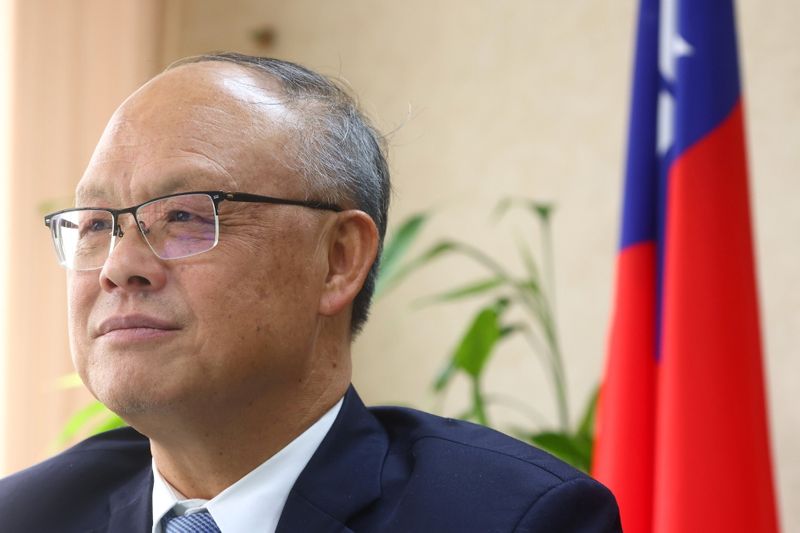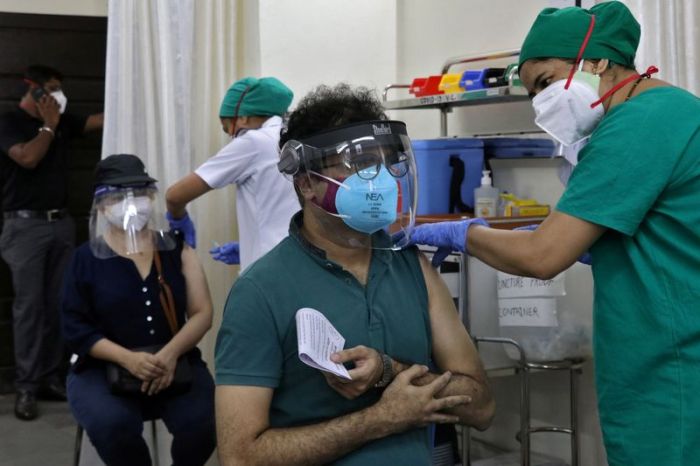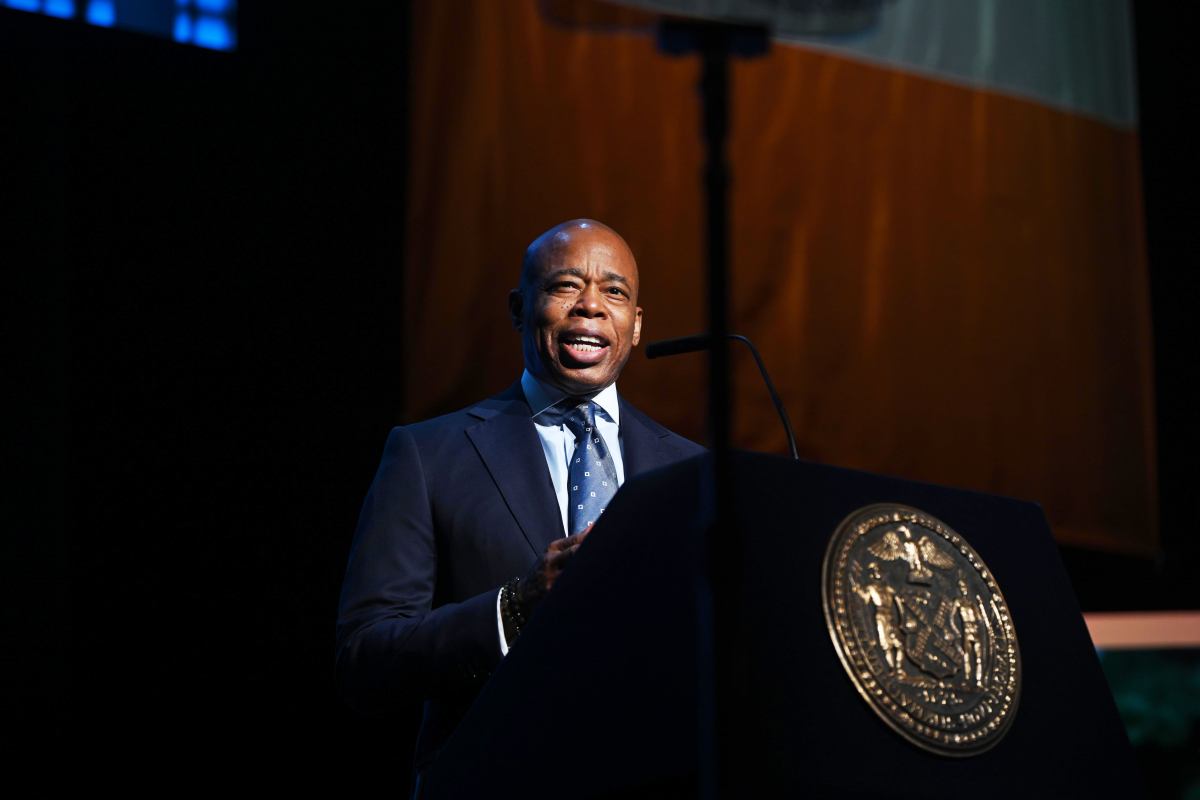By Ben Blanchard and Yimou Lee
TAIPEI (Reuters) -Taiwan’s chief trade negotiator John Deng said on Wednesday he told the United States he hopes the two can sign a free trade agreement, a deal which would be a strong show of U.S. support in the face of relentless Chinese pressure against the island.
Both sides held the long-delayed talks on the Trade and Investment Framework Agreement, or TIFA, virtually. These were stalled after former U.S. President Barack Obama left office in 2016 and his successor Donald Trump’s trade representative, Robert Lighthizer, focused his attention on China, the world’s second-largest economy.
Deng told reporters he had directly raised the issue of a free trade deal during the eight hours of talks.
“We expressed to the U.S. that Taiwan hopes to sign a trade agreement,” he said. “We believe that if we continue to work hard we will achieve our goal one day.”
A statement issued by the U.S. Trade Representative’s office pledged deeper U.S. collaboration with Taiwan on trade and investment but stopped well short of committing to negotiations on a full-fledged free trade deal.
“U.S. officials emphasized the importance of the U.S.-Taiwan trade and investment relationship and expressed a desire for stronger and more consistent engagement going forward,” USTR said.
The U.S. trade agency said the two sides discussed cooperation on combatting climate change, wildlife tracking and forced labor, agreeing to form a new labor working group under TIFA.
Both sides expressed support for joint work to enhance critical supply chain security and resilience and to address concerns such as Taiwan market access for American beef and pork producers, USTR added.
CHINA PRESSURE
The Biden administration has moved to reaffirm its commitment to the democratically governed island in the face of pressure from Beijing to try and assert its sovereignty.
Taiwan has long angled for a free trade deal with the United States, though any such agreement with Taiwan would likely irritate Beijing, which says the island is Chinese territory and does not have the right to state-to-state relations.
A bipartisan group of 42 U.S. senators wrote this week to U.S. Trade Representative Katherine Tai asking her to “take steps to begin laying the groundwork for negotiation of a free trade agreement (FTA), or other preliminary agreement, with Taiwan”, according to a copy of the letter seen by Reuters.
“Maintaining U.S. economic influence in the region and reducing Taiwan’s dependence on China is essential to ensuring that the region remains free and open,” the letter said.
Deng’s deputy, Yang Jen-ni, said the two had also discussed expanding COVID-19 vaccine supplies through technology sharing or licensed production.
While Taiwan is a member of the World Trade Organization, many countries are wary of signing trade deals with the tech powerhouse fearing objections from China, though Taiwan does have free trade deals with Singapore and New Zealand.
Taiwan is a major producer of semiconductors, a shortage of which has roiled supply chains globally and affected auto makers in particular, concerning Washington, which has pressed Taiwan to speed up their production.
Last year, Taiwan’s government lifted a ban on the import of pork containing a leanness-enhancing additive, ractopamine, removing a major stumbling block to a deal with Washington.
(Reporting by Ben Blanchard and Yimou Lee; Additional reporting by Michael Martina and David Lawder in Washington; Editing by Ana Nicolaci da Costa and Kirsten Donovan)

























